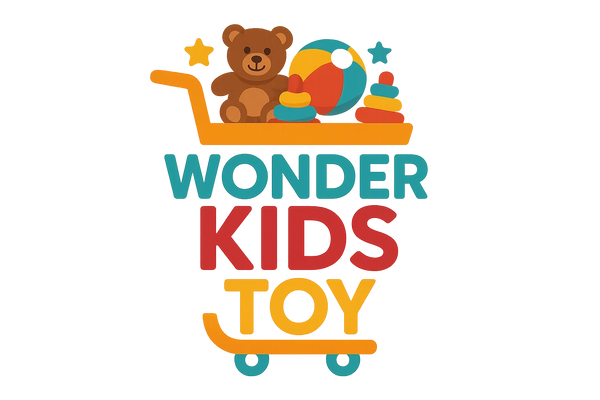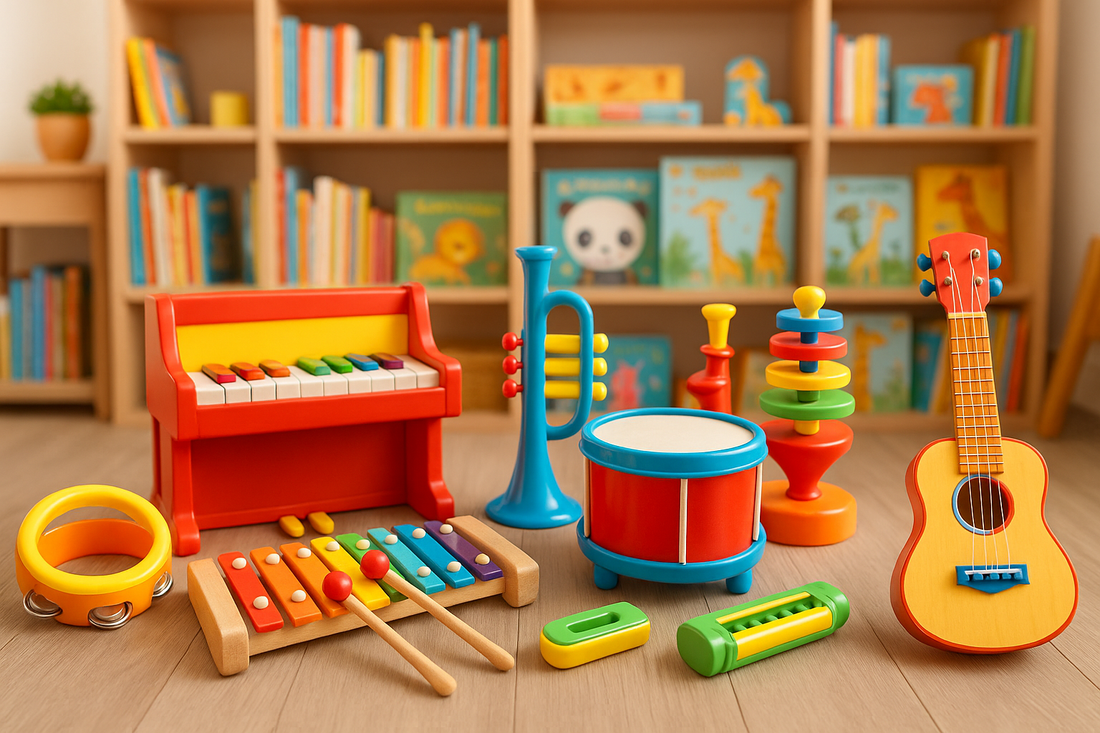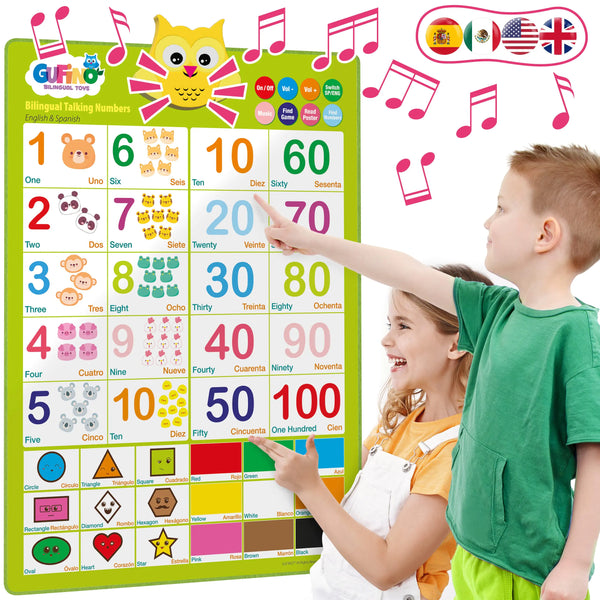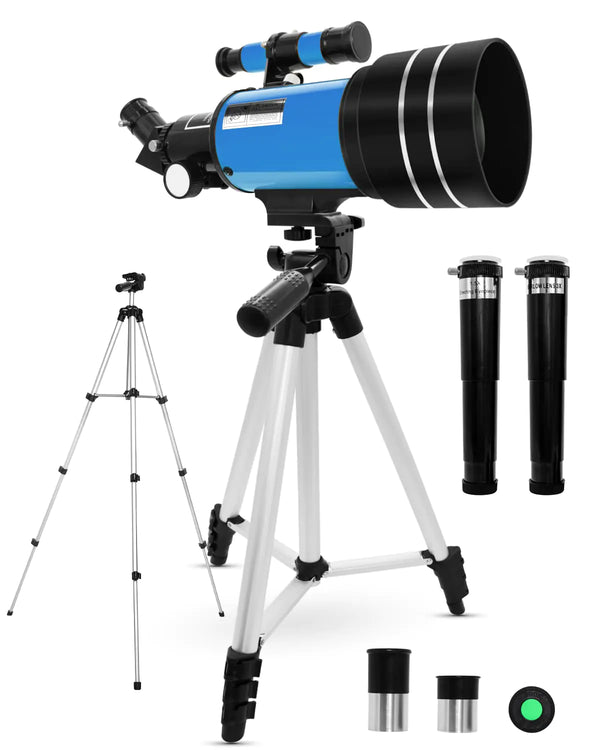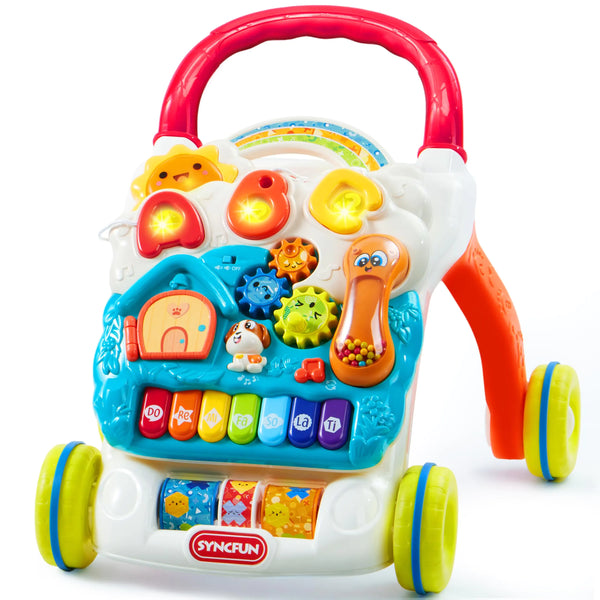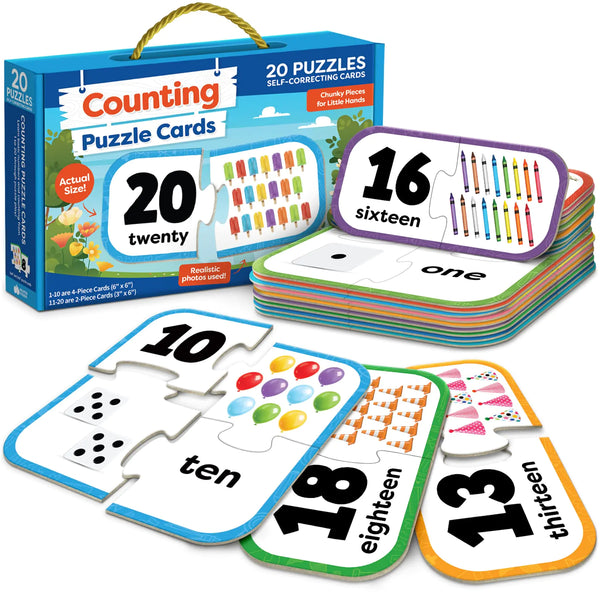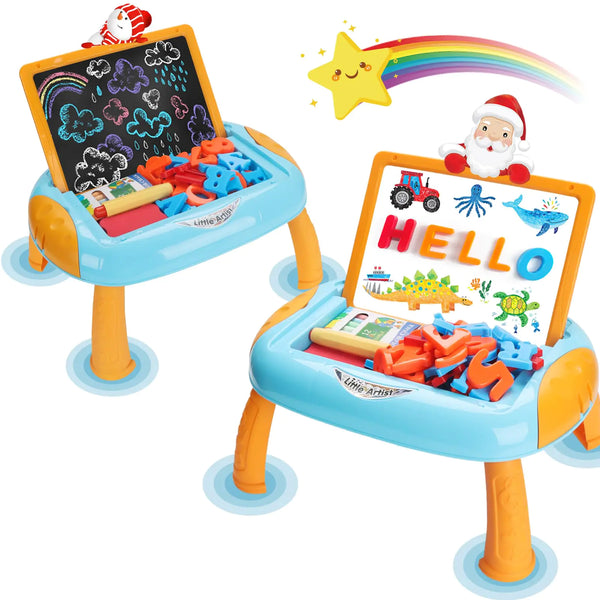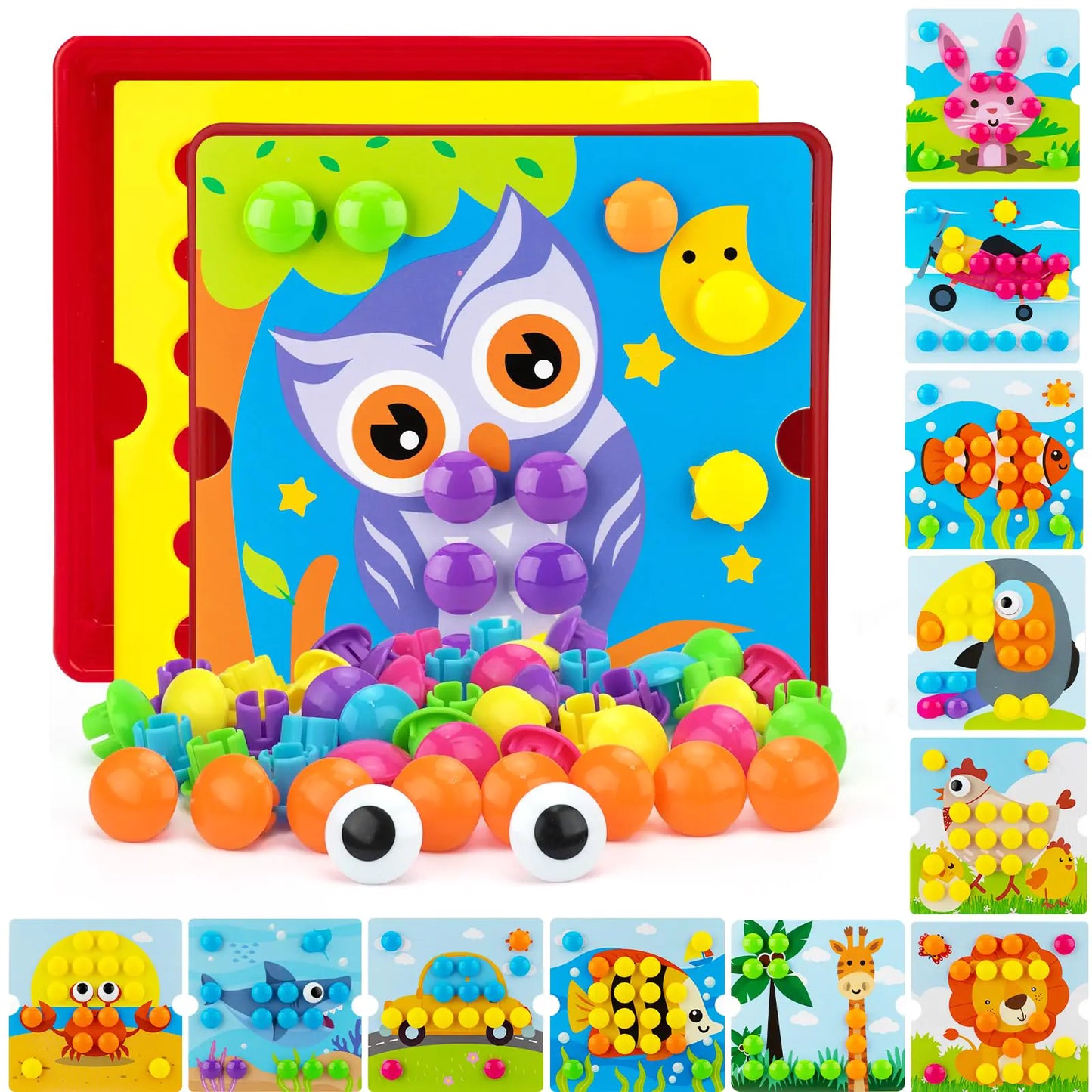As a dad, I've seen firsthand how magical the preschool years are. It's a time of boundless energy, endless questions, and rapid growth. My kids, during these formative years (roughly ages 3-5), seemed to learn something new every single day, often without even realizing they were "learning." It truly hit me then: play isn't just fun; it's the most powerful engine for development. That's why choosing the right educational toys for preschoolers is crucial.
I remember when my little one started showing an interest in letters. We had some simple alphabet-learning toys, and before I knew it, he was recognizing shapes and sounds while just playing. It wasn't about flashcards or worksheets; it was about engaging with toys that made learning feel like a grand adventure. This experience solidified my conviction that the most effective way to prepare children for kindergarten and beyond is to make learning an exciting and joyful part of their daily play.
Why Preschoolers Need Educational Toys
The preschool period is a crucial bridge between infancy and formal schooling. Children are rapidly developing cognitive, social, emotional, and physical skills. Educational toys are not just supplementary; they are foundational tools that facilitate natural development.
How Educational Toys Benefit Preschoolers:
- Fosters a Love for Learning: When learning is fun, kids develop a positive association with it that carries over into school.
- Develops Essential Skills: They build foundational skills in literacy, numeracy, problem-solving, and critical thinking.
- Boosts Confidence: Mastering new concepts through play builds self-esteem and a sense of accomplishment.
- Encourages Independence: Many educational toys allow for self-directed play, empowering children to explore independently.
- Prepares for Kindergarten: They gently introduce concepts and skills needed for school readiness.
- Enhances Social-Emotional Development: Many learning games for kids encourage sharing, turn-taking, and cooperation, fostering social-emotional development.
These toys aim to give our kids a head start, not by rushing them, but by enriching their playtime in ways that are deeply meaningful and impactful.
Key Areas of Development to Target
When I look for preschool educational toys, I focus on ones that support specific areas of development. It helps me ensure a well-rounded play experience that prepares them for the diverse challenges and joys of school.
1. Literacy and Language Development
This is about building the foundation for reading and writing. It’s not just about knowing the ABCs, but about understanding sounds, words, and stories.
-
Alphabet Learning Toys:
- Magnetic Letters: Great for hands-on exploration of letter shapes and sounds on a fridge or magnetic board.
- Alphabet Puzzles: Matching letters to their corresponding slots, often with pictures to associate sounds.
- Talking Flash Cards: Interactive cards that speak letters, words, and sounds, linking auditory and visual learning.
-
Storytelling Toys:
- Puppets: Encourage children to create narratives, practice dialogue, and develop characters.
- Story Cubes/Cards: Prompts that spark imaginative tales, enhancing vocabulary and sequencing.
- Early Reader Books: Interactive books, even electronic ones like those from LeapFrog, can make words come alive.
I've seen the magic unfold as my kids go from singing the alphabet song to pointing out letters on signs. These toys make that transition feel natural and exciting.
2. Numeracy and Early Math Skills
Beyond just counting, this involves understanding quantities, shapes, patterns, and basic problem-solving.
-
Counting Toys:
- Counting Bears/Counters: Tangible objects to group, sort, and count.
- Abacus: A classic tool for visual counting and basic addition/subtraction.
- Number Puzzles: Matching numbers to corresponding quantities or shapes.
-
Shape Sorters and Geometric Blocks:
- These help kids recognize and differentiate shapes and understand how they fit together.
- They also introduce early concepts of spatial reasoning.
- Measuring Toys: Simple measuring cups or rulers in a pretend play kitchen or workbench introduce practical math concepts.
My kids found immense satisfaction in sorting their counting bears by color, then by quantity. It was a simple play that built a strong foundation for future math skills.
3. Cognitive and Problem-Solving Skills
These are the "thinking" skills – how children learn to analyze, reason, and figure things out.
-
Puzzles (Jigsaw and Logic):
- From simple wooden inset puzzles to more complex jigsaw puzzles (12-24 pieces), these are fantastic for spatial reasoning, fine motor skills, and perseverance.
- Logic games for kids can introduce sequential thinking and strategic planning.
-
Building Blocks and Construction Sets:
- Whether classic wooden blocks or interlocking bricks, these educational toys challenge kids to plan, build, and problem-solve.
- They learn about balance, stability, and cause-and-effect.
- Memory Games: Matching pairs, often with pictures, to boost recall and concentration.
I love watching my kids tackle a new puzzle or engineer a solution with their blocks. The "lightbulb" moment when they figure it out is truly remarkable.
4. Fine and Gross Motor Skills
While covered in more detail in another post, it's worth reiterating the importance of these for preschoolers and the educational contribution of educational toys.
-
Fine Motor Skills (hands and fingers):
- Play-Dough/Clay: Excellent for strengthening hand muscles, pinching, rolling, and shaping.
- Lacing Beads/Boards: Improves hand-eye coordination and dexterity.
- Art Supplies (crayons, markers, safety scissors): Develops grip, control, and precision.
-
Gross Motor Skills (large movements):
- Tricycles/Balance Bikes: Crucial for balance and coordination.
- Outdoor Play Equipment: Climbing, running, jumping – all essential for physical development.
Many preschool educational toys inherently integrate fine motor practice through manipulation and interaction, which is key to kindergarten readiness.
5. Social and Emotional Development
Learning games for kids often provide rich opportunities for social and emotional growth, especially when played with others.
-
Pretend Play Sets:
- Role-playing different scenarios (doctor, chef, teacher) helps children understand emotions, practice empathy, and navigate social situations.
- Dramatic play toys, such as dress-up clothes, encourage self-expression.
- Board Games (simple ones): Learning about sharing, taking turns, winning gracefully, and losing with resilience.
- Puppets: Can be used to act out feelings or solve conflicts.
I've seen my children learn invaluable lessons about cooperation and conflict resolution just by playing a simple board game with a friend.
Choosing the Best Educational Toys for Your Preschooler
With numerous options available, how do you determine the best educational toys for your child? As a dad, I've learned to look beyond the flashy packaging and focus on what truly supports their growth.
- Age Appropriateness: This is key. A toy that's too simple will bore them; one that's too complex will frustrate them. Look for toys suitable for children aged 3-5 or 3-6 years, depending on your child's developmental stage.
- Durability and Safety: Preschoolers are active! Choose toys that can withstand enthusiastic play and are made from safe, non-toxic materials.
- Open-Ended Play: As discussed before, toys that can be used in multiple ways are often the most beneficial for creativity and long-term engagement.
- Engaging and Fun: If a toy isn't fun, they won't play with it! The best educational toys disguise learning as play.
- Multi-Sensory Experience: Toys that engage more than one sense (sight, touch, sound) often provide richer learning experiences.
- Align with Interests: What is your child curious about right now? Dinosaurs? Space? Animals? Find toys that tap into their passions.
- Balance: A healthy toy collection includes a mix of academically focused toys, creative supplies, active play items, and social games.
My advice to any parent navigating these years is to embrace the power of play. Don't feel pressured to turn every moment into a formal lesson. Instead, provide rich opportunities for exploration and discovery through well-chosen educational toys.
Preparing for Kindergarten: The Role of Early Learning Resources
The preschool years are often framed as "preparing for kindergarten," and rightly so. However, this preparation isn't just about knowing letters and numbers; it's also about developing executive functions, such as attention, memory, and self-regulation. Early learning resources and the right educational toys play a significant role in this readiness.
- Routines and Structure: Educational games can help reinforce routines and the concept of following rules.
- Attention Span: Engaging toys that hold a child's interest for a sustained period help lengthen their attention span.
- Social Skills: Learning to share, take turns, and communicate in a play setting directly translates to the classroom.
- Problem-Solving Confidence: Knowing they can figure things out builds resilience in the face of academic challenges.
It's truly amazing to see how the skills my kids developed through playing with their preschool educational toys smoothed their transition into formal schooling. They entered kindergarten with confidence, curiosity, and a positive attitude towards learning.
Where to Find Your Ultimate Learning Companions
The preschool years are an ideal time to invest in high-quality educational toys that will have a lasting impact on your child's development. These toys aren't just purchases; they're valuable tools that foster critical thinking, spark creativity, build foundational skills, and, most importantly, make learning an absolute joy.
If you’re looking for a trusted source for the best educational toys, engaging learning games for kids, and a comprehensive array of early learning resources specifically designed for preschoolers, I highly recommend checking out wonderkidstoy.com. They are an established brand recognized for their commitment to delivering products that genuinely enhance a child’s learning and developmental journey. Explore their collection today and help your child step confidently and joyfully into a world of endless discovery!

